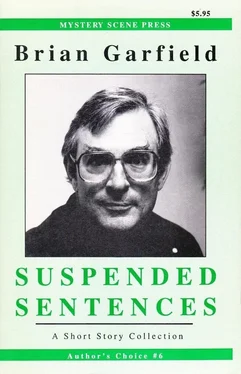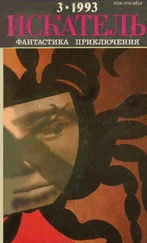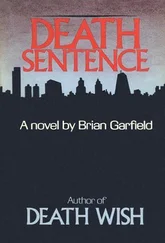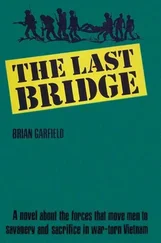“I’ll handle it if you like. I don’t think it’ll be difficult. Technically you’ve committed a crime but it obviously wasn’t intentional. I hardly think they’ll throw the book at you.” And again the reassuring smile. It was the first time she’d ever noticed the dimple in his left cheek.
He was a comfortable and comforting sort of man: very low-key but she supposed he’d cultivated that because a good many of his clients must be people who needed soothing.
He leaned back in his swivel chair with one leg crossed over the other knee, pivoting on the ankle, a yellow pad against the upraised knee and a pencil against his teeth. “Okay. Take it easy. I’m going to have to ask some direct questions. Ready?”
She dipped her head, assenting.
“Formally, then — you acknowledge that you ran down the child?”
She closed her eyes. She knew she’d have to force the words out sooner or later. It might as well be now.
“Yes. I killed the little girl.”
It was all prearranged — an agreement between Charles and the State’s Attorney. She was amazed how quickly it went, in the court-room. She pleaded guilty to involuntary manslaughter. There were a few affidavits, and the judge — a surprisingly young but quite overweight woman — seemed less interested in the various depositions than in Charles’s photographs of the scene of what Carolyn had finally been able to start calling The Accident (as opposed to The Day I Killed Amy Murdoch).
Charles pointed out the overgrown hedge in the photos and showed how it would have been impossible for anyone to have seen the little girl in time. He also pointed to the brief black skid marks that showed up clearly against the pale gray pavement; according to the police analysis they showed she couldn’t have been doing more than twenty-five miles an hour at the time she saw Amy emerge into the street.
(She’d been going faster than that but she’d already braked to avoid the dog.)
“In short,” Charles summed up, “I think this incident represents a textbook example of an unavoidable accident. I would point out to your honor that there wasn’t any hit-and-run. Mrs. Benson stopped immediately and had the presence of mind to try and save the little girls’ life. She called the police and the ambulance. She even went up to the Murdoch house and told Mr. Murdoch what had happened. I think this tragic incident must be chalked up as an act of God, your honor, and I think justice would be best served if Mrs. Benson were acquitted; but we recognize that a homicide has been committed and that may not be possible.
“My client is ready to accept whatever punishment this court decides to hand down, but I’d like to point out that in her own conscience she has already suffered far more than justice might demand of her. I suggest there were several victims of this horrible accident, your honor, and Mrs. Benson was one of them.”
The judge lectured her a bit, had another brief look at the photos, agreed the accident had been clearly unavoidable, pointed out that under the laws of the state she had no choice but to find Carolyn guilty of involuntary manslaughter, and pronounced sentence: “Three hundred and sixty-four days. Sentence is suspended.”
Charles had told her to expect just that. He’d explained what it meant, in practical terms: she’d have to report to a parole officer once a month — a formality — and she’d have to apply for the court’s permission if she wanted to leave the state before the end of the year’s period. She couldn’t believe it was that simple. “You mean it’s over? I can go?”
Getting up from the courtroom table he took her arm and gave her that smile. “All over. You’ve punished yourself enough.”
It provoked a grunt from someone behind her. She didn’t look back; she knew who it was. Stanley Murdoch. He’d been sitting at the prosecutor’s table throughout the trial. He’d never said a word. He hadn’t even looked at her very much. He didn’t look enraged or even bitter; his face seemed rather slack, actually. But his presence in the room throughout the brief trial had disturbed her as if he were a ticking bomb.
Murdoch brushed past her without a word and strode out of the courtroom. Carolyn, feeling faint, reached for Charles’s hand.
He took her to eat in one of those business-lunch places that was mostly bar, had no windows, and lulled you with Muzak. He bought her a drink and said, “I know a bit of how it feels. You feel as if you’ve been drugged. You’re disoriented. Nothing’s quite real. You don’t know what’s going to happen in your life tomorrow or next week or next year.” Her hand was on the table and he touched it with his own. “I know it’s hard to buy this idea at a time like this, but you will get over it. Life will resume.”
She stared into the amber translucence of the drink. “I can’t go on living three doors down from Stanley Murdoch. I couldn’t stand him giving me those hurt accusing looks every time I passed by.”
“The house is too big for you anyhow, by yourself. Why don’t you move into an apartment? Buy one of those condominiums out by the lake shore.”
“I’ll think about it,” she said listlessly.
She had an appointment that afternoon to help a fat woman in the Fairview tract choose carpeting and wallpaper. The fat woman’s husband had got a raise and she wanted to do the house over and she’d gone through the Yellow Pages under “Interior Decorators and Designers” — Carolyn was the third decorator in the alphabetical listing and she had a suspicion that the fat woman probably had phoned the first two but got no answer.
She kept the appointment because she was still alert enough to realize she had to keep occupied. It was a tedious afternoon. The fat woman had poor taste and even so she couldn’t make up her mind about anything. Carolyn tried to guide her into some sort of sensible combinations but her own aplomb was shattered and she didn’t have her normal abilities to charm and persuade. Half the time it was a chore merely to avoid screaming at the stupid cow.
Finally — a line of least resistance — she let the fat woman have her way with some absurdly mismatched carpets that would clash dreadfully with the tweedy couch she had at home. Carolyn made a heroic effort, managed to summon one last feeble smile, said a hurried goodbye, and rushed away. Riding home in the back of the taxi — she still wasn’t trusting herself to drive the car — she realized dismally that this wasn’t going to work. Not right away. She didn’t have the patience for it. One more appointment like this afternoon’s and she’d start screaming her head off; she’d end up in a rubber room. There had to be some other focus for her attention, until these terrible anxieties and tensions began to settle down.
If they ever would...
She had the furtive impulse to hide her face when the taxi took her past the hedge — past Murdoch’s house. Defiantly she lifted her head, put her face close to the window, and looked at the house.
She wished she hadn’t. He was there. Murdoch. Standing on the porch of the old house watching her ride past. He was not reading or smoking or drinking; he was not doing anything. He was simply standing there — watching her, and it was as if he’d been standing on that spot all afternoon waiting for her.
His face didn’t change. He only watched. But she could feel the burning impact of his eyes all the time while she paid off the cab driver and hiked the bag over her shoulder and walked — as slowly and proudly as she could, but it was an effort not to run — up to her door. Then, absurdly, she couldn’t find the key and spent ages rummaging in the damned bag.
When she finally eeled inside and pushed the door shut, she peered out through the crack. He was still there, diagonally across the street on his porch, watching, watching.
Читать дальше










